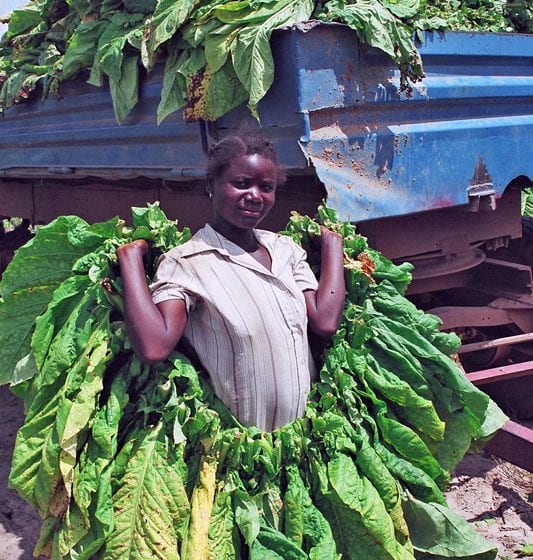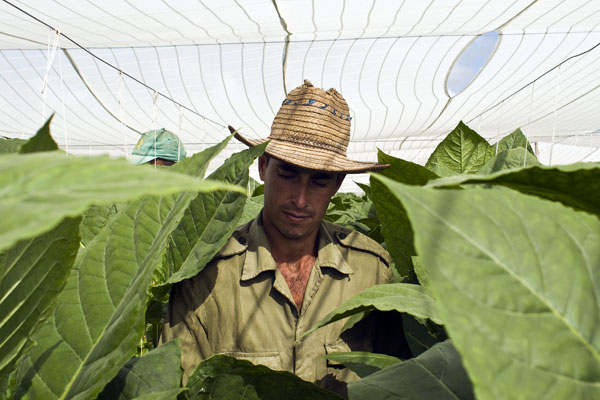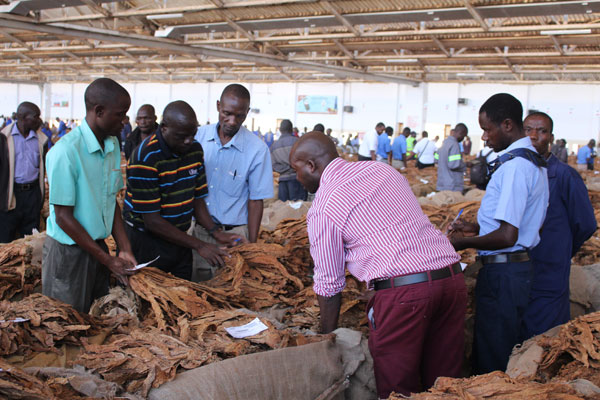UL, a global safety science company, said yesterday that Joyetech, a global manufacturer of electronic cigarettes and vaporizers, had become the first organization to certify to UL 8139, a safety standard that evaluates the electrical and battery systems of ‘vaping devices and electronic cigarettes’. The certification was issued to Joyetech’s vapor pen, eGO AIO.
In a press note issued through PR Newswire, UL said it had recently published ANSI/CAN/UL 8139, Electrical Systems of Electronic Cigarettes and Vaping Devices, which had been recognized by the American National Standards Institute (ANSI) and the Standards Council of Canada (SCC), covering the electrical, heating, battery and charging systems of these products. The development of UL 8139 addressed also specific fire safety concerns raised by North American fire officials.
“UL strives to help manufacturers bring safer products to market and empower consumer trust,” said Ghislain Devouge, vice president and general manager for UL’s Consumer Technology division. “UL 8139 is a collaborative effort with government agencies and industry stakeholders to further enhance consumer safety.”
The testing requirements for UL 8139 evaluate the safety of the electrical, heating, battery and charging systems, but the standard does not address devices that have removable battery cells, e-cigarette consumables or the long-term or physiological effects of the consumables.
Joshua Church, chief compliance officer for the Joyetech Group, said Joyetech strived to be a leader in the ENDS [electronic nicotine-delivery system] industry and was constantly looking for ways to ensure the safety of its high-end technology. “For us, this UL 8139 certification is a validation of our commitment to using scientific and expert methods to test our products,” he said. “For our customers, it illustrates our dedication to providing greater peace of mind.”
Meanwhile, Maggie Gowen, executive director of the Global Vaping Standards Association, a non-profit trade group, said the Association had been working toward the introduction of safety standards such as UL 8139 that helped manufacturers bring the best products to the consumer. “Our membership base is dedicated to pursuing higher quality standards, especially those that cover hardware and battery design, she said”
Category: People

Setting standards

Quit program lacking
More than 20,000 people signed up for a 28-day, quit-tobacco-smoking program run by Singapore’s Health Promotion Board (HPB) last year, but only about 10 percent stayed away from cigarettes for the duration of the program, according to a story in The Straits Times.
“It’s not as high as we’d like, but internationally it compares quite well,” said Senior Parliamentary Secretary for Health and Home Affairs Amrin Amin.
He was giving updates on the HPB’s I Quit 28-Day Countdown program, which was said to have given smokers the knowledge and motivation to give up their habit, while at the same time launching a new campaign to raise awareness about smoking’s downsides.
Earlier this year, the government announced it aimed to reduce the number of smokers to under 10 percent of the population by 2020. Last year the smoking rate was 12 percent.
Getting people to give up smoking was not a one-off effort, and various factors played a part in getting people to quit, said Amrin. The government would study ways to strengthen the process over the next year or so.
According to a study conducted by the HPB last year, the top three factors that would motivate smokers to quit were health, family and finances.
Singapore is one of a number of countries that have banned the sale of all vaping products.
Tobacco ban threat
Hong Kong’s Chief Executive Carrie Lam Cheng Yuet-ngor said on Thursday it was worth considering banning traditional tobacco products, according to a story at ejinsight.com citing reports by Apple Daily and the Hong Kong Economic Journal.
Lam’s statement on a possible tobacco-products ban came the day after she announced the Government’s intention to impose a ban on electronic cigarettes. She had been asked during a radio interview why, if it were concerned about public health, the Government wanted to ban e-cigarettes but not traditional tobacco.
Her latest remarks were an apparent about-face. Lam said on Wednesday it was not proper to ban abruptly a long-existing commercial activity, referring to the sale of traditional tobacco products.
The chief executive said that she was bold enough to impose a total ban on traditional tobacco, but that there were a lot of pros and cons that needed to be considered before doing so.
She said also that the prevalence of smoking among people aged 15 and older had dropped to 10 percent from 20 percent in the 1980s, indicating that Government efforts to reduce smoking had been successful.
Meanwhile, the Secretary for Food and Health Professor Sophia Chan Siu-chee said the policy of banning the importation, manufacture, sale, distribution and advertisement of e-cigarettes had been finalized and would not be changed.
There are concerns that e-cigarette smokers will be forced to return to traditional cigarettes once the ban takes effect, but Chan said that was mere speculation and not supported by data.
A study conducted last month by the Foundation for a Smoke-Free World showed more than six in 10 adult smokers said they relied on e-cigarettes to help them quit smoking.
Chan said authorities would step up efforts at tobacco control after implementation of the e-cigarette ban.
E-cig epidemic crackdown
The US Food and Drug Administration says it has sent letters to electronic-cigarette companies seeking to discover if 40 such products are being marketed illegally.
In a note issued through its Center for Tobacco Products, the FDA said the 21 letters that had been sent included those to the manufacturers and importers of the brands Vuse Alto, myblu, Myle, Rubi and STIG.
It said it was ‘seeking information about whether more than 40 products – including some flavored e-cigarette products – are being illegally marketed and outside the agency’s current compliance policy’.
‘These new actions build on those taken by the FDA in recent weeks as part of its Youth Tobacco Prevention Plan to address the epidemic of youth e-cigarette use, including cracking down on the sale and marketing of e-cigarettes to kids and educating youth about the dangers of using these products,’ the note said.
“Companies are on notice – the FDA will not allow the proliferation of e-cigarettes or other tobacco products potentially being marketed illegally and outside of the agency’s compliance policy, and we will take swift action when companies are skirting the law,” FDA Commissioner Scott Gottlieb, M.D, was quoted as saying. “Given the explosive growth of e-cigarette use by kids, we’re committed to taking whatever measures are appropriate to stem these troubling use trends. We’re going to address issues related to the access kids have to e-cigarettes, as well as the youth appeal of these products. If products are being unlawfully marketed and outside the FDA’s compliance policy, we’ll act to remove them.”
‘The FDA has received complaints that some companies may be marketing new products that do not meet the Food Drug and Cosmetic Act’s (FD&C Act) premarket requirements and that were introduced or modified after the deeming rule’s Aug. 8, 2016, effective date,’ the note said. ‘Such modifications could include the introduction of new product features, formulations or flavors. These letters ask companies to provide information about the products in question, including evidence that the product is a deemed product that was on the market as of Aug. 8, 2016 and has not been modified since that date.
‘Any product that does not comply with the premarket requirements of the FD&C Act is adulterated and misbranded and may not be marketed without authorization from the FDA. The agency has several tools to enforce these requirements and its regulations, including pursuing administrative actions such as civil money penalty complaints (fines) or judicial actions such as seizures or injunctions.’
There is more information here.
BAT shows off Zambia plant
British American Tobacco (BAT) Zambia’s MD, Godfrey Machanzi, says his company is committed to contributing toward the country’s economic development, according to a story in The Lusaka Times.
Machanzi was speaking during a media tour of the company’s new, US$25 million cigarette manufacturing factory in Lusaka on Saturday.
The factory, which is situated at the Lusaka South Multi-Facility Economic Zone, was said to have created 72 direct jobs and a further 2,500 jobs in the ‘formal and informal sectors’.
Machanzi noted also that the construction of the factory was evidence of the Government’s commitment to enabling investment in the country.
BAT Zambia previously had a factory in the country, but it had been closed, Machanzi said, before adding that the company’s return was an expression of its confidence in the Zambian economy.
He said that, as in other markets, tobacco production supported many jobs and therefore had a positive impact on the country’s economy.
But he sounded a warning. He said the illegal tobacco trade continued to be the biggest challenge. Zambia had the highest incidence of illegal tobacco-products imports in Southern Africa.
Diplomatic smoke signals
Hungary’s Minister of Foreign Affairs and Trade Peter Szijjarto has imposed a tobacco-smoking ban on the ministry’s properties and on those of Hungarian embassies around the world, according to a Xinhua News Agency story citing an ‘official’ speaking in Budapest on Saturday.
‘Smoking is henceforth prohibited in all of the locals of the Ministry of Foreign Affairs and Trade,’ the Hungarian official journal reportedly announced. ‘The ban concerns all of the real estates falling under the management of the ministry, may it be owned or rented, in Hungary or abroad, such as embassies.’
The new measure bans also the designated, enclosed smoking areas, that have been in use up to now. Smokers will be allowed to smoke only outside, on the streets.
The directive does not stipulate how often employees can break from their work to smoke a cigarette.
Public looking for facts
A new global survey has indicated that 77 percent of adults agree that governments should do all they can to encourage people who would otherwise keep smoking cigarettes to switch completely to ‘better alternatives’.
The survey was commissioned by Philip Morris International and conducted by Ipsos.
In a note posted on its website, PMI said that smoking was ranked alongside obesity, alcoholism and opioid use in its importance as a public health issue. Importantly, the multinational survey showed strong support for the role that innovation and technology should play in resolving these global health problems.
“This survey shows that most people around the world agree that smoking is still a serious public health problem,” Dr. Moira Gilchrist, vice president of scientific and public communications at PMI, was quoted as saying. “They want to see action to tap into the opportunity provided by alternatives to cigarettes that are scientifically substantiated. We are in complete agreement with that view. Public opinion aligns with common sense, and the survey confirms what we have heard for more than a decade.”
PMI said the survey results had shown also that 86 percent of respondents believed consumer goods companies had an obligation continually to research and innovate their products in the interest of public health. ‘However, only 35 percent thought that governments have done a good job to ensure everyone has access to the latest innovations and advancements,’ the PMI note said. ‘Clearly, society does not want governments to block promising solutions to public health problems.’
Publication of the study results follows a meeting of the Conference of the Parties (COP) to the World Health Organization’s Framework Convention on Tobacco Control (FCTC) in Geneva last week, where 181 member countries and non-governmental organizations (NGOs) met to decide on global tobacco control policy recommendations. None of their discussions were open to the public or media.
‘Although many individual states took progressive positions, the disappointing and unfortunate outcome of the COP will mean that millions of smokers will not know about better alternatives to cigarettes,’ PMI said. ‘This approach is in sharp contrast with public opinion: 92 percent of those surveyed agreed that smokers should have access to accurate information to guide their choices.’
Gilchrist said the science was clear. “The evidence shows that switching to a smoke-free product is a better choice than continuing to smoke,” she said. “We simply cannot keep smokers in the dark about this information. The COP missed an opportunity to put people and science at the heart of its policymaking.”
‘Contrary to common sense, the tobacco industry has been discouraged from innovating and inadvertently encouraged to keep cigarettes at the core of their business models,’ PMI said.
‘Despite this, at PMI we will not waiver from our commitment to provide the world’s 1.1 billion smokers with better alternatives to cigarettes, as well as information about these options.
‘Countries now have the opportunity to implement local regulations that embrace science and technology. Progressive polices can effectively protect overall population health, while still working in the best interests of men and women who smoke.’
“With any other global problem, from the environment to obesity, everyone works together to deliver better alternatives, inform people about them and incentivize them to change behavior,” Gilchrist said. “Why should this common-sense approach not apply to tobacco?”
‘The clear call from society for more information about, and access to, better alternatives to cigarettes did not come without important caveats that we support,’ PMI said. ‘Of those surveyed, 92 percent agreed that these new products must have robust scientific testing prior to being introduced into the market, and 91 percent agreed that once these products have been introduced their impact needs to be monitored to ensure they are reducing the harm caused by cigarettes.
The survey data can be view here.
Credit ratings up in smoke
Health authorities in Beijing will include illegal tobacco smoking into citizens’ credit records as part of the city’s smoke-free Beijing campaign, according to a China.org.cn story quoting the Beijing Youth Daily.
In addition to publicly naming and shaming offenders, the Beijing Municipal Commission of Health and Family Planning will share information about their offending with the city’s industry and commerce authorities.
Citizens in Beijing with a bad credit record could face difficulties in applying for commercial loans.
Beijing imposed a blanket smoking ban on June 1, 2015, covering all indoor public places, workplaces and public transportation. The ban is said to be the strictest of its kind in China.
According to a report by the Beijing Tobacco Control Association, 2,265 violations of the ban were reported to the public WeChat account of Smoke-free Beijing between August and September this year.
Meanwhile, the association reported also an increasing number of complaints over the use of electronic cigarettes in public places.
In response, the Beijing Municipal Commission of Health and Family Planning said that more studies would be carried out into the harm caused by vaping electronic cigarettes to provide a scientific basis for its control.
Cuba aims for big harvest
Cuban agriculture authorities yesterday said they aimed this season to harvest more than 34,000 tons of tobacco, despite the damage caused by Hurricane Michael to the crop in the western Pinar del Rio province, according to a Xinhua News Agency story.
The president of the state-owned Tobacco Business Group (Tabacuba), Justo Fuentes, said the company had signed contracts with tobacco farmers based on that figure, before adding that “the harvest must be higher in hectares, quality and yield this year”.
The tobacco season got underway in the central Sancti Spiritus province, Cuba’s second largest tobacco producing area, on Wednesday.
Tabacuba aims to plant more than 30,000 ha this season, which will conclude in the first months of 2019.
Meanwhile, work is underway to recover from the damage caused by Hurricane Michael in the Vueltabajo region of Pinar del Rio, where thousands of tobacco ha were damaged earlier this week.
Vuetlabajo, considered by some to be the world’s best tobacco producing region, provides about 70 percent of national tobacco production in Cuba.
The tobacco industry is Cuba’s fourth largest employer, providing permanent jobs for about 200,000 people. At its peak, a quarter of a million people are employed in the harvest.
In the 2017-2018 season, producers harvested about 30,000 tons of tobacco, 6,000 tons more than during the previous season.
Malawi prices plummet
The [average] price paid to tobacco growers in Malawi this year fell by 16.5 percent from that of last year, according to a Reuters story relayed by the TMA.
The average prices for 2017 and 2018 were not given but last year the country’s Tobacco Control Commission (TCC) reported that, on average, tobacco had fetched US$2.00 per kg in 2017 against the previous year’s US$1.50 per kg.
On this basis, this year’s average price would have been about US$1.67 per kg.
However, there was a question mark over the 2017 and 2016 prices given last year. The story in which the TCC was quoted as saying the 2017 price was US$2.00 per kg, seemed to give the grower revenue for 2017 as US$212 million earned from the sale of 124 million kg, which would suggest an average price of US$1.71 per kg. And the 2016 revenue on the sale of 194 million kg was given as US$275 million, which suggested an average price of US$1.42 per kg. (The average price of US$2.00 per kg cannot be explained as being the average price for one of the tobacco types because the story gave the various averages as: US$1.36 for dark fired tobacco, US$1.80 for Burley, and US$2.92 for flue-cured.)
On this basis, this year’s average price would have been about US1.43 per kg.
The prices certainly seem to have been poor. Even at US$2.00 per kg, the average price was down on that of 2013, for instance, when it stood at US$2.11 per kg.
Auction Holdings Limited and the TCC were reported by Reuters to have issued a joint release that said revenues for 2018 had reached US$337.5 million, up from US$212.4 million in 2017. The reason why revenues rose by about 60 percent while prices fell by 16.5 percent was put down to a 90 percent increase in volume.
Even this year’s revenue looks miserly. Figures from the TCC show that tobacco revenue in 2010 stood at $410 million.










